Breach
The whale breaches
Enveloped by water, the whale has poise. It produces sounds like an experimental synth band broadcasting from the deep. Most undersea footage shows the whale gliding, all slow motion grace, past the lens of a diver’s camera; David Attenborough says something to the effect of “The diver is tiny in comparison to this immense and beautiful animal.”
People pay money to wait in boats, hoping to witness the whale push out of its world, to see it pause for an instant at the zenith of its arc. The traditional response is awe.
The physics of propelling such mass out of the water and into the air is impressive. Yet: the whale sheds all grace in that moment. Now this zen denizen of the ocean is but a behemoth slab of flesh, gasping upward, flashing a barnacled flipper – and smashing down in a panic of disrupted water, like a bowling ball dropped on a glass coffee table.
The act seems more a blunder than anything else. Was that the intended entrance?
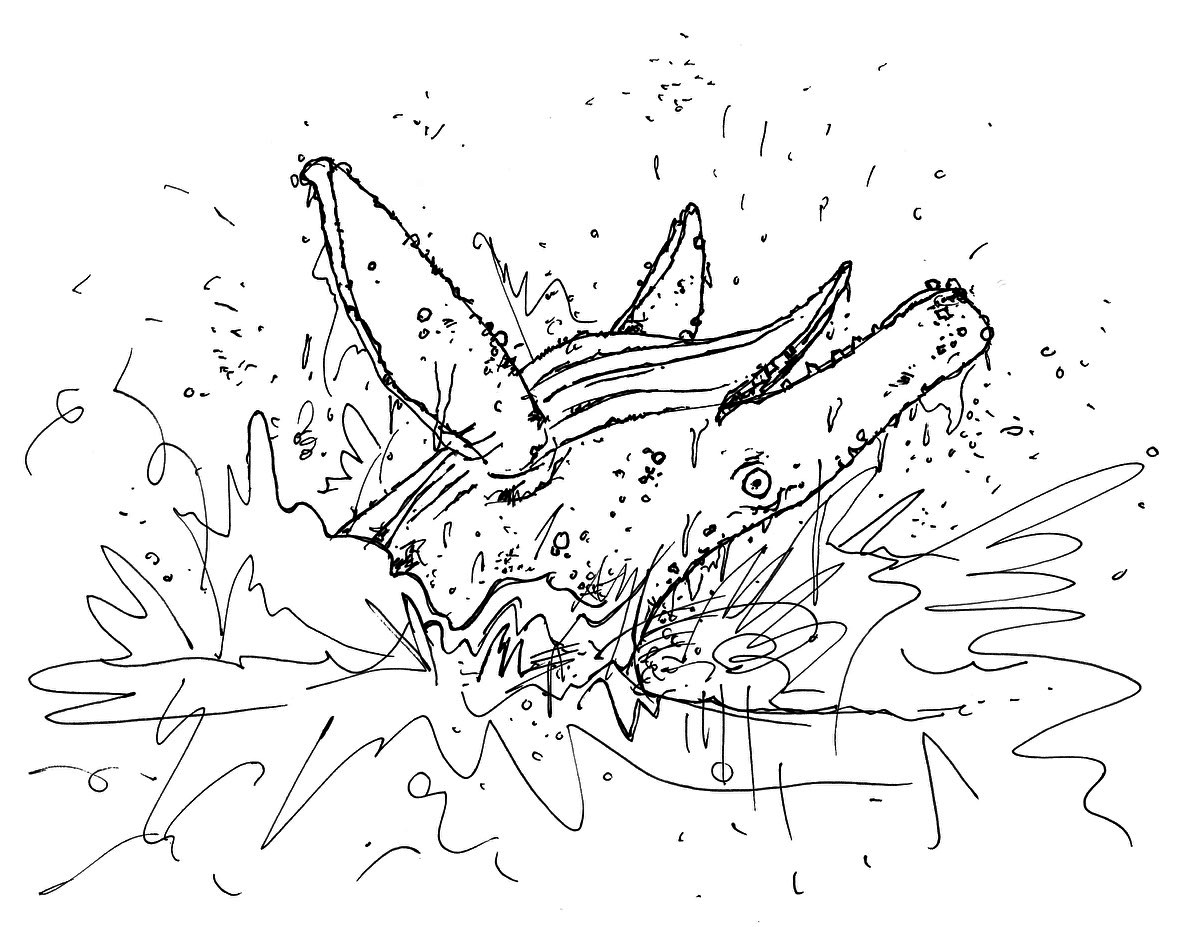 My impression of the great sea-cow back flop.
My impression of the great sea-cow back flop.
After its great flop, the whale might loll on the surface for a time, huffing through its blowhole like an unfit cross-country runner.
A whale breaching is the definition of bathos.
The whale endangers
We rarely consider how dangerous the whales are. I can only assume that they pose a considerable threat – this must be why we hunt them down, shoot harpoons into them, and drag them onto boats for careful analysis and sashimi.
Only in the name of self-defence would we harry creatures who otherwise embody bathos: absurd, graceful, hapless, fantastical, inelegant, spectacular goofs. Demolishing whales for any other reason would be heinous. Like eating a kitten.
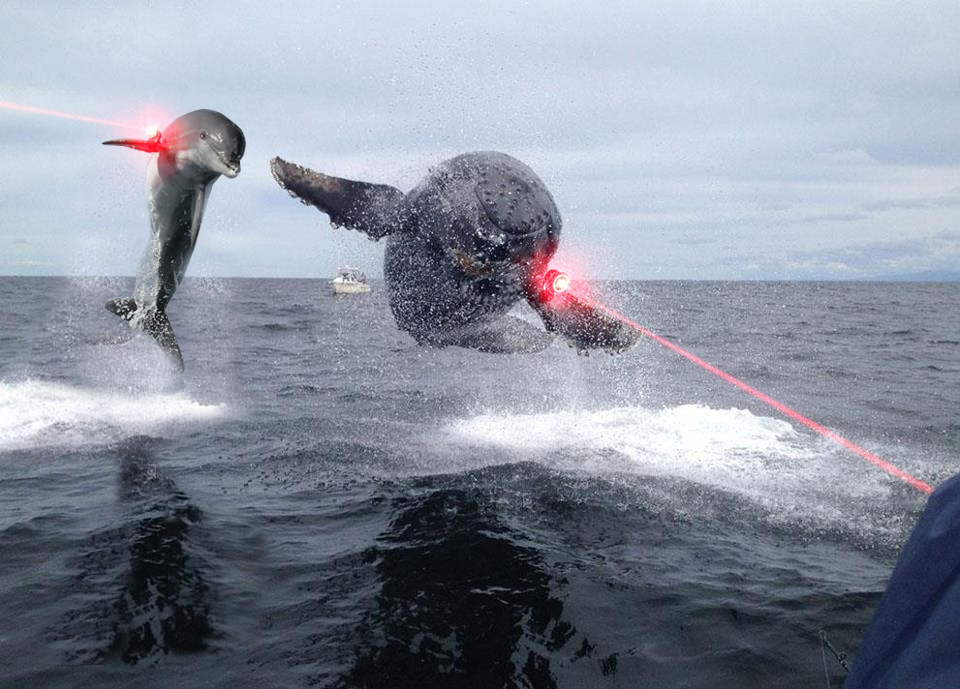 Dolphin Kid and Laser Whale – antihuman terrorists.
Dolphin Kid and Laser Whale – antihuman terrorists.
It must be a matter of them or us. And when such a dichotomy is established in nature, the survival imperative of the human race ensures that it’s always us. We are able to see off all natural predators, thanks to our proportionately gigantic brains and vast reservoir of shared knowledge.
The pursuit of the whale certainly can’t be about them tasting delicious – a criterion by which we regularly bypass other moral considerations. They don’t taste delicious. (I asked a friend.)
The whale disrupts
The wobbly darkness of the ocean surface; the way little tufts of water gently nip at the air – you come to value the sight of it. You start to look at it in the same way some people survey their lawn, postmow: they see something sacred in its uncomplicated flat greenness; the smell of a hundred thousand severed blade tips drying in the sun. Like the lawn, the ocean surface elevates onlookers to a state of the sublime. It is immeasurably vast, peaceful. Then the whale obliterates it.
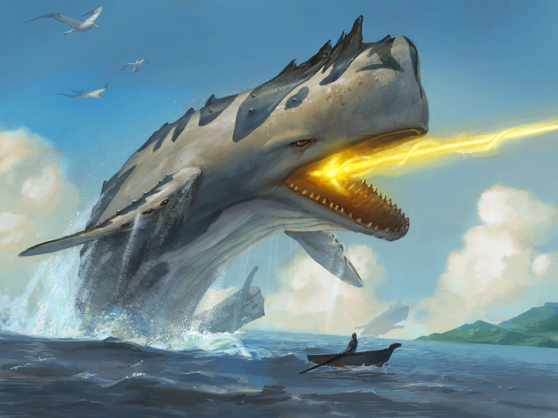 Terror Whale 3000.
Terror Whale 3000.
The whale attacks
We underestimate the manoeuvres of the whale. It intends to land squarely on the boat, scuttling those aboard so it may devour them whole, but it lacks the coordination to do so. With each great leap and miss, the creature grows hungrier and more frustrated.
The people who watch for the whales in boats must be very brave. And heavily armed. Long may their perilous quest continue.
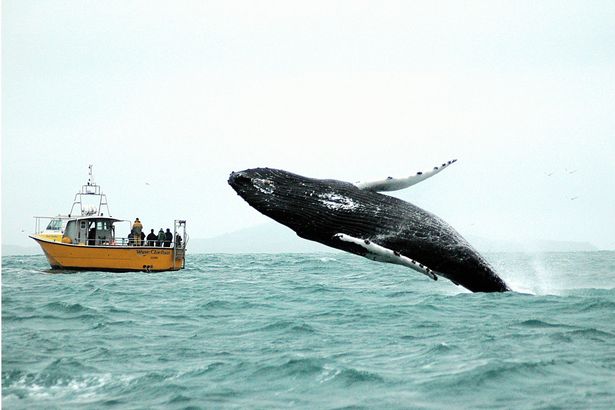 The whale emerges, poised to strike; fortunately none of this boat’s occupants are facing in the correct direction to experience THE FEAR.
The whale emerges, poised to strike; fortunately none of this boat’s occupants are facing in the correct direction to experience THE FEAR.

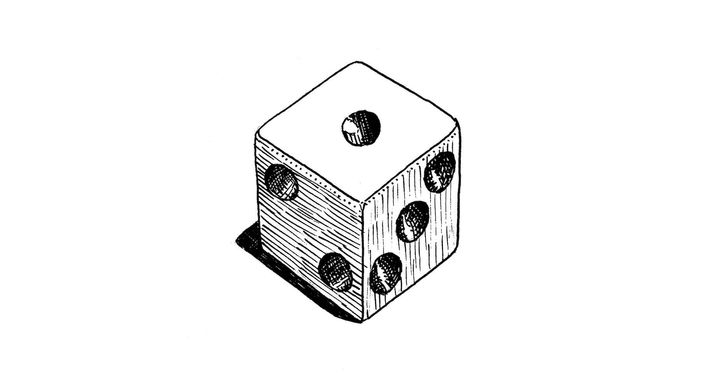
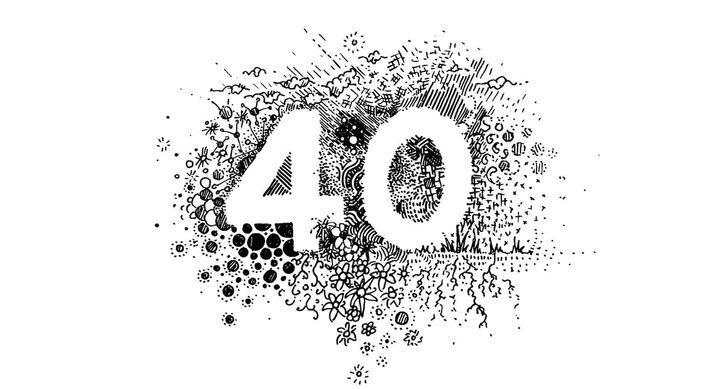
Comments ()